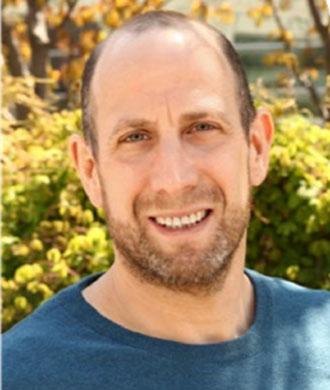Stewart H.
Mostofsky
,
MD
Breadcrumb
Home Patient Care Faculty & Leadership Stewart H. Mostofsky, MD
707 N. Broadway
Baltimore, MD 21205
United States
About
Dr. Stewart Mostofsky is a research scientist and director of the Center for Neurodevelopmental and Imaging Research (CNIR) at Kennedy Krieger Institute. He is also a professor of neurology at the Johns Hopkins University School of Medicine.
Education
Dr. Mostofsky received his medical degree in 1990 through the Rensselaer Polytechnic Institute-Albany Medical College six-year program, where he won the Jack Spitalny Prize for exceptional achievement in pediatrics. He went on to an internship and residencies in pediatrics and pediatric neurology at the University of Minnesota. Dr. Mostofsky first came to Kennedy Krieger Institute in 1995 for a fellowship in the Department of Developmental Cognitive Neurology, and stayed on as a pediatric neurologist, with subspecialty training and experience in behavioral neurology as it applies to the study of childhood developmental disorders. Dr. Mostofsky is the director of Kennedy Krieger Institute's Center for Neurodevelopmental and Imaging Research (CNIR), which focuses on understanding the neurological basis of developmental disorders, including autism, attention deficit hyperactivity disorder (ADHD) and tourettee syndrome (TS).
Dr. Mostofsky’s clinical practice focuses on serving children in the autism spectrum and he served as the medical director of the Center for Autism and Related Disorders (CARD) at Kennedy Krieger Institute. He is a member of the American Academy of Neurology, the Child Neurology Society, the International Neuropsychological Society, the Society for Cognitive Neuroscience, the Society for Behavioral and Cognitive Neurology, and the Organization for Human Brain Mapping.
Research
In the Center for Neurodevelopmental and Imaging Research (CNIR), Dr. Mostofsky investigates the biological basis of developmental disorders using both structural and functional imaging techniques and experimental neurobehavioral paradigms, including motor, sensory/perceptual, and cognitive testing. These methods are used to improve our understanding of the neurologic basis of autism, ADHD and tourettee syndrome, and to guide development of novel intervention strategies. This work has been supported by grants from the NIH (NINDS and NIMH), the Autism Speaks Foundation and Simons Foundation Autism Research Initiative.
Dr. Mostofsky’s research with children with autism is focused on careful examination of the motor function, as increased insight into the brain mechanisms underlying the disorder might be gained from careful consideration of the motor signs associated with autism. Dr. Mostofsky has made important contributions to identifying the common factors underlying motor impairments in autism and how anomalous patterns of motor learning in autism may contribute to the impaired social and communicative deficits that define the disorder. He is now leveraging these findings to develop novel game-based intervention strategies for children with autism.
Dr. Mostofsky is also working to pinpoint the neural systems affected in ADHD and to help identify mechanisms for effective therapeutic intervention. This investigative work has led to important insights into how impairments in response selection and control (of behavior ranging from basic motor execution to higher level cognition) contribute to the excessive impulsive, hyperactive and off-task ("distractible") behavior. Guided by these findings, Dr. Mostofsky is now examining the efficacy of novel movement-based intervention strategies, including mindfulness practice.
Dr. Mostofsky’s research also focus on tourettee syndrome to determine whether tactile sensitivity is associated with the severity of tics and sensory urges, and to look into brain mechanisms that contribute to impaired tactile sensitivity and sensory urges. His findings discovered with TS, reduced GABA-based inhibition in the brain’s supplementary motor area (SMA) is associated with both increased severity of TS symptoms as well as a reduced ability to actively suppress tics. His findings will provide a basis for helping children and TS reduce tics and sensory urges by targeting GABA and related brain signaling.
Certifications
Maryland Medical License #D0047985
Research Studies
Autism Research
- Children, Ages 8-12, With and Without Autism Spectrum Disorders
- Adults, Ages 18-45 With and Without Autism Spectrum Disorders
ADHD Research
